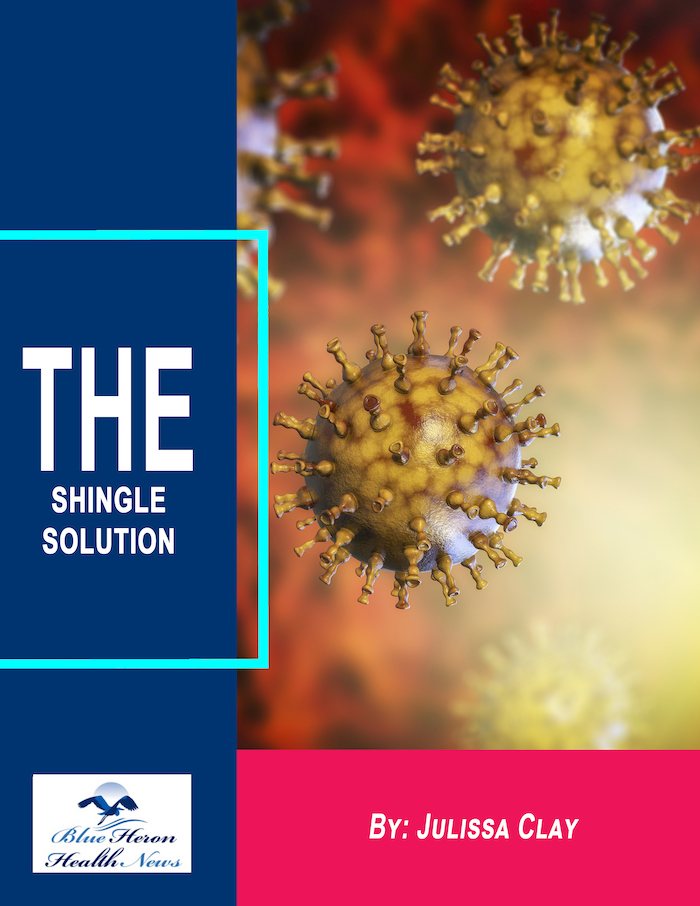
The Shingle Solution™ By Julissa Clay This eBook includes a program to treat the problem of shingle naturally. The author of this eBook, Julissa Clay, a practitioner in natural health, has killed the shingles causing virus completely to overcome the problem of PHN or Postherpetic neuralgia, one of the common complications caused by shingles. This program helps in melting PHN in a few weeks and make shingles a forgotten nightmare.
How can one improve their overall quality of life with shingles?
Improving quality of life with shingles involves managing the physical pain and discomfort of the condition, reducing stress, and supporting overall health and well-being. Here are several strategies to enhance quality of life while dealing with shingles:
1. Effective Pain Management
- Antiviral Medications: Starting antiviral medications (like acyclovir, valacyclovir, or famciclovir) within 72 hours of symptom onset can reduce the severity and duration of shingles, which may prevent complications like postherpetic neuralgia.
- Over-the-Counter Pain Relief: Non-prescription pain relievers such as ibuprofen or acetaminophen can help manage mild to moderate pain. For more severe pain, your doctor may prescribe stronger medications like opioids, gabapentin, or tricyclic antidepressants.
- Topical Treatments: Apply calamine lotion, colloidal oatmeal baths, or lidocaine creams to soothe itching and burning from the shingles rash.
2. Skin Care and Comfort
- Keep the Rash Clean and Dry: This prevents infections and speeds up the healing process. Avoid picking at blisters to reduce the risk of scarring or secondary infections.
- Loose Clothing: Wear soft, loose-fitting clothing to minimize irritation and discomfort. Tight clothes can aggravate the shingles rash.
- Cool Compresses: Applying cool, wet compresses can provide relief from itching and discomfort. This can be particularly soothing during flare-ups.
3. Stress Management
- Relaxation Techniques: Shingles can be triggered or worsened by stress, so practicing relaxation techniques like deep breathing, meditation, or yoga can help lower stress levels. Guided imagery, mindfulness, or progressive muscle relaxation are also effective in managing stress and reducing pain sensitivity.
- Sleep Hygiene: Quality sleep is essential for recovery. Create a calming bedtime routine, avoid caffeine and screens before bed, and ensure your bedroom is cool, dark, and quiet to promote restful sleep. If pain interrupts sleep, discuss pain management options with your doctor.
- Mindfulness: Practicing mindfulness or cognitive-behavioral therapy (CBT) techniques can help manage the emotional burden of dealing with shingles and its associated pain.
4. Maintain a Healthy Diet
- Boost Immune Health: A balanced, nutrient-rich diet can support your immune system and aid in recovery. Focus on foods rich in vitamins (especially vitamin C and D), antioxidants, and omega-3 fatty acids, such as fruits, vegetables, nuts, seeds, and fish.
- Stay Hydrated: Drink plenty of water to stay hydrated, as dehydration can exacerbate fatigue and slow down healing.
- Avoid Processed Foods: Limit processed, sugary, or high-fat foods that may increase inflammation and slow healing.
5. Physical Activity
- Gentle Exercise: While strenuous activity may be too much during a shingles outbreak, gentle activities such as stretching, walking, or yoga can improve circulation, reduce stiffness, and improve mood. Exercise can also promote better sleep and reduce stress.
- Rest When Needed: Balancing physical activity with adequate rest is important. Listen to your body and avoid overexertion, especially during flare-ups.
6. Pain Management for Postherpetic Neuralgia (PHN)
- Address Chronic Pain: For some, shingles pain can persist after the rash heals, known as postherpetic neuralgia (PHN). If this occurs, consult your doctor about options such as prescription medications (gabapentin, pregabalin), topical treatments (lidocaine patches, capsaicin cream), or nerve blocks.
- Alternative Pain Therapies: Complementary therapies such as acupuncture, transcutaneous electrical nerve stimulation (TENS), or biofeedback can provide relief for PHN and improve quality of life.
7. Emotional and Mental Health Support
- Support Groups: Connecting with others who have experienced shingles can be emotionally beneficial. Online or in-person support groups provide an outlet to share your experiences and learn coping strategies from others.
- Counseling or Therapy: Dealing with a painful condition like shingles can take an emotional toll. Consider seeking professional support from a therapist, especially if you are feeling overwhelmed, anxious, or depressed.
- Stay Socially Connected: Maintaining social connections, even in small ways, can improve your emotional well-being. Reaching out to friends or family members for support can reduce feelings of isolation.
8. Prevent Future Outbreaks
- Shingles Vaccine (Shingrix): Once you have recovered from shingles, consider getting the shingles vaccine (Shingrix) to reduce the likelihood of future outbreaks. This is particularly important for people over 50 or those with weakened immune systems.
9. Manage Long-Term Complications
- Vision Protection: If shingles affects the eye (ophthalmic shingles), seek immediate treatment from an eye specialist to prevent long-term damage like vision loss or scarring.
- Hearing or Balance: Shingles can sometimes affect the ear and lead to hearing loss or balance issues (Ramsay Hunt syndrome). Early treatment from an ear specialist is crucial for minimizing long-term effects.
10. Create a Supportive Environment
- Modify Your Home for Comfort: During a shingles outbreak, make adjustments at home to increase comfort. Ensure that your living space is clean, cool, and restful, and that you have easy access to everything you need for daily care (like medications, comfortable clothing, or soothing creams).
- Prepare for Flare-Ups: Have a plan in place for managing future flare-ups, including a list of medications, contact information for healthcare providers, and a routine for self-care. This can reduce anxiety and make it easier to cope with the condition.
By incorporating these strategies, individuals with shingles can reduce pain, manage symptoms, and improve their overall quality of life while recovering.

The Shingle Solution™ if you are suffering from shingles then The Shingle Solution can be the best program for you to relieve your pain and itching by using a natural remedy. It describes the ways to use this program so that you can feel the difference after using it as directed. This natural remedy for shingles can also help in boosting your immune system along with repairing your damaged nerves and relieve pain and itching caused by shingles